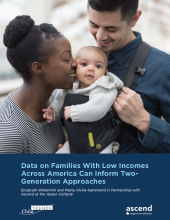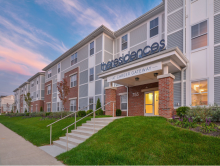0
Report
Community:
May 17, 2023
Researchers at UC Berkeley’s Youth and Allies Against Homelessness, or YAAH, conducted a study to better understand how the COVID-19 pandemic disproportionately affected unhoused youth and their ability to transition out of homelessness and into adulthood. YAAH released a report Wednesday to suggest how to better support this community in the future.
Authored by: UC Berkeley's Youth Allies Against Homelessness for The Daily Californian
Topics: Broadband, COVID-19, Food insecurity, Health, Homelessness, Housing, Low-income, Mental health, Racial inequalities, Youth
 Shared by Sandra Ware
Shared by Sandra Ware
Sandra Ware posted a
on May 25, 2023
UC Berkeley's Youth Allies Against Homelessness for The Daily Californian
Researchers at UC Berkeley’s Youth and Allies Against Homelessness, or YAAH, conducted a study to better understand how the COVID-19 pandemic disproportionately affected unhoused youth and their ability to transition out of homelessness and into adulthood.
0
Report
Community:
Mar 1, 2023

We are delighted to share a new research report in partnership with Child Trends: Data on Families with Low Incomes Across America Can Inform Two-Generation Approaches. In this new analysis, research experts Elizabeth Wildsmith and Marta Alvira-Hammond paint a detailed picture of how families in households with low incomes in the United States have changed since 2011. The report highlights 10 key findings from their analyses of family economic and social conditions related to financial security and mobility, family structure and living arrangements, education and employment, parental health, and community health indicators (for example, rates of child poverty, violent crime, child care costs). A deeper understanding of families with low-incomes will inform our collective work and strengthen how our 2Gen policy and practice recommendations can prioritize health, education, employment, and economic assets to ensure families have access to the resources they need to build intergenerational prosperity and well-being.
Authored by: Elizabeth Wildsmith and Marta Alvira-Hammond for Child Trends in partnership with Ascend at the Aspen Institute
Topics: dual-generation initiative, Early childhood, Education, Health, Housing, Legislation & Policy, Low-income, Racial inequalities
 Shared by Sandra Ware
Shared by Sandra Ware
Sandra Ware posted a
on Mar 2, 2023
Elizabeth Wildsmith and Marta Alvira-Hammond for Child Trends in partnership with Ascend at the Aspen Institute
We are delighted to share a new research report in partnership with Child Trends: Data on Families with Low Incomes Across America Can Inform Two-Generation Approaches.
0
Publication
Community:
Nov 3, 2022
In the newly released Stanford Social Innovation Review article, co-authors Jessica Mulcahy, Success Measures at NeighborWorks America; Vedette R. Gavin, Verge Impact Partners; and Stacey Barbas and Kate McLaughlin, The Kresge Foundation discuss their collaborative work on a three-year developmental evaluation to learn about the strategies and approaches grantees are using to advance health equity through housing. This article is part of the series “Collaboration for Housing Justice” sponsored by Funders for Housing and Opportunity to mark their fifth anniversary.
Authored by: Stacey Barbas, Kate McLaughlin, Jessica Mulcahy & Vedette R. Gavin, Stanford Social Innovation Review
Topics: Community development, Health, Housing, Place-based, Racial inequalities, Research
 Shared by Camille Anoll-Hunter
Shared by Camille Anoll-Hunter
Camille Anoll-Hunter posted a
on Dec 15, 2022
Stacey Barbas, Kate McLaughlin, Jessica Mulcahy & Vedette R. Gavin, Stanford Social Innovation Review
In the newly released Stanford Social Innovation Review article, co-authors Jessica Mulcahy, Success Measures at NeighborWorks America; Vedette R.
0
Webinar
Community:
Dec 14, 2021
At its December 2021 meeting, CLPHA's Housing Is Working Group learned from experts in the field about how they have worked to create resident-focused and community-centered work with their PHAs and partners. We also brainstormed how best to support residents and work towards more equitable and representative housing for everyone, and left with the knowledge of how to better highlight and prioritize resident voices and leadership at every level of our work.
Authored by: Housing Is
Topics: Family engagement, Health, Healthy homes, Housing, Housing Is Working Group, Mental health, Racial inequalities, Supportive housing
 Shared by Stephanie Gray
Shared by Stephanie Gray
Stephanie Gray posted a
on Apr 18, 2022
At its December 2021 meeting, CLPHA's Housing Is Working Group learned from experts in the field about how they have worked to create resident-focused and community-centered work with their PHAs and partners.
0
Podcast
Community:
Jan 13, 2021
On a day-to-day basis, vulnerable populations suffer from inequities in health, wealth, and education. These same people are then disproportionately impacted by catastrophes ranging from hurricanes to COVID-19, which only serve to underline the great and urgent need for equity across race, gender, and income. In the latest episode of The Intersect, Madeline Colety and Lorine Giangola discuss how Abt’s housing and resilience work is helping clients promote equity.
Authored by: Madeline Colety & Lorine Giangola for ABT ASSOCIATES
Topics: Advocacy, Community development, Education, Food insecurity, Health, Healthy homes, Homelessness, Housing, Low-income, Partnerships, Racial inequalities
 Shared by Housing Is
Shared by Housing Is
Housing Is posted a
on Jan 14, 2021
Madeline Colety & Lorine Giangola for ABT ASSOCIATES
On a day-to-day basis, vulnerable populations suffer from inequities in health, wealth, and education.
0
Policy Brief
Community:
Jun 4, 2019
The Department of Housing and Urban Development (HUD) has announced its intention to roll back protections for transgender people experiencing homelessness. The newly proposed rule, which is in the early stages of the rulemaking process and has not yet been publicly posted to the Federal Register, would allow homeless shelters to discriminate based on gender identity, putting transgender people in danger of violence and further housing instability. This is part of a long string of attacks the Trump administration has directed toward the transgender community, such as implementing the infamous military ban, contributing to a pattern that legally perpetuates discrimination against transgender people in this country.
Authored by: Aastha Uprety for Equal Rights Center
Topics: Health, Homelessness, Housing, Legislation & Policy, Racial inequalities
 Shared by Housing Is
Shared by Housing Is
Housing Is posted a
on Jun 13, 2019
Aastha Uprety for Equal Rights Center
The Department of Housing and Urban Development (HUD) has announced its intention to roll back protections for transgender people experiencing homelessness.
0
Publication
Community:
Jun 12, 2019
Zoning rules dictate more than just how we can use and build on land. They also shape our communities and our lives. Land use laws determine where we can find housing, schools, and parks—and who has access to them.
Authored by: Maya Brennan, Emily Peiffer, and Kimberly Burrowes for How Housing Matters, The Urban Institute
Topics: Health, Housing, Legislation & Policy, Racial inequalities
 Shared by Housing Is
Shared by Housing Is
Housing Is posted a
on Jun 13, 2019
Maya Brennan, Emily Peiffer, and Kimberly Burrowes for How Housing Matters, The Urban Institute
Zoning rules dictate more than just how we can use and build on land. They also shape our communities and our lives. Land use laws determine where we can find housing, schools, and parks—and who has access to them.
0
Video
Community:
May 24, 2019
Dr. Camara Jones, a Senior Fellow at Morehouse School of Medicine and a past president of the American Public Health Association, will discuss systemic, historical inequities that constrict the social safety net and ways cross-sector collaboration can help improve health outcomes, educational attainment, and housing stability.
Authored by: Housing Is, CLPHA
Topics: Health, Housing, Racial inequalities, Research
 Shared by Housing Is
Shared by Housing Is
Housing Is posted a
on May 24, 2019
0
Publication
Community:
May 20, 2019
African-Americans are three times more likely to die from asthma as whites. In Philadelphia and elsewhere, how can outcomes improve with changes to housing quality and pollution control?
Authored by: Sophia Newman for Next City
Topics: Asthma, Health, Housing, Low-income, Racial inequalities
 Shared by Housing Is
Shared by Housing Is
Housing Is posted a
on May 23, 2019
Sophia Newman for Next City
African-Americans are three times more likely to die from asthma as whites. In Philadelphia and elsewhere, how can outcomes improve with changes to housing quality and pollution control?
0
Report
Community:
May 15, 2019
Where you live is linked to how healthy you are.Sadly, U.S. Latino communities are marked by lower-quality, unaffordable housing, as well as high risk for eviction and displacement. This contributes to health inequities in this population. That’s what we found in our new research review, The State of Latinos and Housing, Transportation, and Green Space, released on May 14, 2019, by my team at Salud America!, a national network for health equity at UT Health San Antonio.
Authored by: Amelie Ramirez for Salud America!, UT Health San Antonio and the National Low Income Housing Coalition
Topics: Health, Housing, Racial inequalities, Research
 Shared by Housing Is
Shared by Housing Is
Housing Is posted a
on May 15, 2019
Amelie Ramirez for Salud America!, UT Health San Antonio and the National Low Income Housing Coalition
Where you live is linked to how healthy you are.Sadly, U.S. Latino communities are marked by lower-quality, unaffordable housing, as well as high risk for eviction and displacement. This contributes to health inequities in this population.
0
Publication
Community:
Mar 27, 2019
Housing is at the epicenter of all opportunities and outcomes. It is the first rung on the ladder to economic opportunity, and a person’s access to opportunity is linked with that of their community. From health, to economic mobility, to educational opportunity, to racial equity, and beyond, housing shapes families and communities.
Authored by: Maya Brennan and Veronica Gaitan for How Housing Matters, The Urban Institute
Topics: Asset building, Education, Health, Homelessness, Housing, Low-income, Mobility, Racial inequalities
 Shared by Housing Is
Shared by Housing Is
Housing Is posted a
on Mar 28, 2019
Maya Brennan and Veronica Gaitan for How Housing Matters, The Urban Institute
Housing is at the epicenter of all opportunities and outcomes. It is the first rung on the ladder to economic opportunity, and a person’s access to opportunity is linked with that of their community.
0
Report
Community:
These Principles are derived from a thematic review of mission statements and principles from 35 organizations representing the community development, health, academic, government, finance, and philanthropic sectors. More than 200 respondents provided over 1,800 comments which helped refine the Principles below.
Authored by: Build Healthy Places Network
Topics: Community development, Health, Housing, Partnerships, Racial inequalities
 Shared by Housing Is
Shared by Housing Is
Housing Is posted a
on Mar 11, 2019
Build Healthy Places Network
These Principles are derived from a thematic review of mission statements and principles from 35 organizations representing the community development, health, academic, government, finance, and philanthropic sectors.
0
Publication
Community:
Jan 24, 2019
Affordable housing campaigns are not new, of course, but what is unprecedented and transformative about Opportunity Starts at Home is the scope and diversity of the partners that are joining forces to advocate for more robust and equitable federal housing policies. The campaign is advised by a Steering Committee including leading national organizations representing a wide range of interests that are working shoulder-to-shoulder to solve the affordable housing crisis.
Authored by: Opportunity Starts at Home
Topics: Asset building, Child welfare, CLPHA, Community development, Early childhood, Education, Food insecurity, Funding, Health, Homelessness, Housing, Immigrants, Legislation & Policy, Low-income, Mobility, Out-of-school time, Partnerships, Racial inequalities, Safety, Seniors, Stability, Substance abuse, Youth
 Shared by Mica O'Brien
Shared by Mica O'Brien
Mica O'Brien posted a
on Jan 24, 2019
Opportunity Starts at Home
Affordable housing campaigns are not new, of course, but what is unprecedented and transformative about Opportunity Starts at Home is the scope and diversity of the partners that are joining forces to advocate for more robust and equitable federal housing policies.
0
Podcast
Community:
Why does it seem as if poverty is segregated to certain neighborhoods? What’s the secret to addressing the root of intergenerational poverty? How can we bring in new investment while preserving the history and culture of a place? Join us to explore these questions and more.
Authored by: Purpose Built Communities
Topics: Community development, Education, Health, Housing, Low-income, Mobility, Place-based, Racial inequalities, Research
 Shared by Mica O'Brien
Shared by Mica O'Brien
Mica O'Brien posted a
on Dec 5, 2018
Purpose Built Communities
Why does it seem as if poverty is segregated to certain neighborhoods? What’s the secret to addressing the root of intergenerational poverty? How can we bring in new investment while preserving the history and culture of a place? Join us to explore these questions and more.
0
Research
Community:
Nov 14, 2018
Now that free and reduced price lunch (FRPL) status as an indicator of economic disadvantage is in decline, stakeholders are turning to replacement measures. Given the extent of socioeconomic and racial segregation in most school districts, neighborhood-level measures of economic distress seem like an appealing, easy-to-measure alternative, but this seemingly intuitive solution does a bad job of predicting FRPL rates and performs worse in places where it is more critical to get it right.
Authored by: Tomas Monarrez for The Urban Institute
Topics: Education, Health, Housing, Low-income, Metrics, Place-based, Racial inequalities, Research
 Shared by Mica O'Brien
Shared by Mica O'Brien
Mica O'Brien posted a
on Nov 14, 2018
Tomas Monarrez for The Urban Institute
Now that free and reduced price lunch (FRPL) status as an indicator of economic disadvantage is in decline, stakeholders are turning to replacement measures.
1
News Article
Community:
Aug 19, 2018
A body of evidence points to a link between living in areas of concentrated poverty and health.
Authored by: Paul Chisholm for NPR
Topics: Child welfare, Community development, Health, Housing, Low-income, Medicaid / Medicare, Metrics, Partnerships, Racial inequalities, Safety
 Shared by Housing Is
Shared by Housing Is
Housing Is posted a
on Aug 20, 2018
A body of evidence points to a link between living in areas of concentrated poverty and health.
0
Research
Community:
Aug 1, 2018
Housing may influence health through various mechanisms and is
recognized as a social determinant of health. This study investigated the influence of rental assistance on modifiable health risk factors and behaviors using data from the Panel Study of Income Dynamics. Participants receiving rental assistance were compared with participants not receiving rental assistance on body mass index (BMI), obesity, smoking, alcohol use, and physical activity
Authored by:
Topics: Exercise, Health, Housing, Low-income, Metrics, Nutrition, Obesity, Partnerships, Racial inequalities, Research, Smoke-free, Substance abuse
 Shared by Housing Is
Shared by Housing Is
Housing Is posted a
on Aug 1, 2018
Housing may influence health through various mechanisms and is
recognized as a social determinant of health. This study investigated the influence of rental assistance on modifiable health risk factors and behaviors using data from the Panel Study of Income Dynamics.
0
Research
Community:
Aug 1, 2018
Work requirements in public housing are highly controversial, and
little is known about their impacts. We examined how implementation of a work requirement paired with supportive services by Charlotte Housing Authority has impacted residents’ overall well-being. Although the policy might improve well-being
by increasing household income, it might also engender stress through greater housing precarity.
Authored by:
Topics: Depression, Disabilities, Education, Food insecurity, Health, Housing, Low-income, Medicaid / Medicare, Mental health, Metrics, MTW, Partnerships, Racial inequalities, Research, South, Workforce development
 Shared by Housing Is
Shared by Housing Is
Housing Is posted a
on Aug 1, 2018
Work requirements in public housing are highly controversial, and
little is known about their impacts. We examined how implementation of a work requirement paired with supportive services by Charlotte Housing Authority has impacted residents’ overall well-being.
0
Research
Community:
Aug 1, 2018
We examine the implementation of a community health worker (CHW)
program in subsidized housing, describe needs identified and priorities set by residents, and summarize participant-reported outcomes.
Authored by:
Topics: East Coast, Health, Housing, Low-income, Mental health, Metrics, Partnerships, Place-based, Racial inequalities, Research
 Shared by Housing Is
Shared by Housing Is
Housing Is posted a
on Aug 1, 2018
We examine the implementation of a community health worker (CHW)
program in subsidized housing, describe needs identified and priorities set by residents, and summarize participant-reported outcomes.
0
Research
Community:
Jul 27, 2018
The purpose of this paper is to investigate the association between public housing and health conditions: specifically, we ask if residents entered public housing already ill or if public housing may cause the poor health of its residents.
Authored by:
Topics: Health, Housing, Low-income, Mental health, Metrics, Mobility, Nutrition, Racial inequalities, Research, South
 Shared by Housing Is
Shared by Housing Is
Housing Is posted a
on Jul 27, 2018
The purpose of this paper is to investigate the association between public housing and health conditions: specifically, we ask if residents entered public housing already ill or if public housing may cause the poor health of its residents.
0
Policy Brief
Community:
Jul 13, 2018
The tools and strategies included here provide communities with ideas and inspiration to help them plan for healthy housing for all their residents. They include best practices culled from across the United States as well as new ideas.
Authored by:
Topics: Funding, Health, Homelessness, Housing, Legislation & Policy, Low-income, Racial inequalities, RAD
 Shared by Housing Is
Shared by Housing Is
Housing Is posted a
on Jul 13, 2018
The tools and strategies included here provide communities with ideas and inspiration to help them plan for healthy housing for all their residents. They include best practices culled from across the United States as well as new ideas.
0
Research
Community:
Jul 11, 2018
Studies show that those residing in households subsidized with federal housing vouchers exhibit fewer mental health problems than residents of public housing. The role of housing conditions and neighborhood quality in this relationship is unclear. This study investigated the relationship between rental assistance, housing and neighborhood conditions, and the risk of depressive symptomology and hostile affect among low-income Latino adults living in the Bronx, NY
Authored by:
Topics: Depression, East Coast, Health, Housing, Low-income, Mental health, Obesity, Racial inequalities, Research, Stability
 Shared by Housing Is
Shared by Housing Is
Housing Is posted a
on Jul 11, 2018
Studies show that those residing in households subsidized with federal housing vouchers exhibit fewer mental health problems than residents of public housing. The role of housing conditions and neighborhood quality in this relationship is unclear.
0
Report
Community:
Jul 10, 2018
HUD Administrative Data Linked with the National Health Interview Survey
Authored by:
Topics: Attendance, Child welfare, Data sharing, Dental, Health, Housing, Low-income, Medicaid / Medicare, Mental health, Metrics, Racial inequalities, Vision
 Shared by Housing Is
Shared by Housing Is
Housing Is posted a
on Jul 10, 2018
HUD Administrative Data Linked with the National Health Interview Survey
0
Policy Brief
Community:
Jul 10, 2018
Children’s HealthWatch's brief "asks two straightforward questions: If health starts at home, what are the healthcare and educational costs of unstable housing? Which policy solutions could create stable homes for healthier families?"
Authored by: Children's Health Watch
Topics: Asthma, Child welfare, Dental, Early childhood, Education, Foster care, Grade-level proficiency, Health, Healthy homes, Housing, Lead, Literacy, Low-income, Medicaid / Medicare, Obesity, Partnerships, Pre-natal, Preventative care, Racial inequalities, School-readiness, Stability, Vision, Youth
 Shared by Steve Lucas
Shared by Steve Lucas
Steve Lucas posted a
on Jul 10, 2018
Children’s HealthWatch's brief "asks two straightforward questions: If health starts at home, what are the healthcare and educational costs of unstable housing? Which policy solutions could create stable homes for healthier families?"
1
Video
Community:
May 23, 2018
The Council of Large Public Housing Authorities (CLPHA) hosted The Housing Is Summit in Washington, D.C., on May 3-4, 2018 with 300 partners across the housing, education, and healthcare sectors. Access video recordings of the Summit's keynote speakers (HUD Secretary Ben Carson, John Bridgeland, Matthew Morton), plenary panels (on topics that cut across sectors like anchor institutions, data collaboration, stability, and foundation investments), and select breakout sessions focused on the intersections of housing, education, and health.
Authored by: Council of Large Public Housing Authorities
Topics: Affordable Care Act, Attendance, Child welfare, CLPHA, Community development, Data sharing, Dual-eligibles, Dual-generation, Early childhood, Education, Funding, Grade-level proficiency, Health, Healthy homes, Homelessness, Housing, Legislation & Policy, Low-income, Medicaid / Medicare, Mental health, Metrics, MTW, Out-of-school time, Partnerships, Place-based, Preventative care, Racial inequalities, Research, School-readiness, Seniors, Stability, Substance abuse, Supportive housing, Sustainability, TA, Workforce development, Youth
 Shared by Steve Lucas
Shared by Steve Lucas
Steve Lucas posted a
on May 23, 2018
The Council of Large Public Housing Authorities (CLPHA) hosted The Housing Is Summit in Washington, D.C., on May 3-4, 2018 with 200 partners across the housing, education, and healthcare sectors. The Summit highlighted the ways that we can transform systems to better serve low-income people with two days of plenary speakers/panels, breakout sessions, and caucus discussions geared toward intersectional thinking and ways to take action.
Council of Large Public Housing Authorities
The Council of Large Public Housing Authorities (CLPHA) hosted The Housing Is Summit in Washington, D.C., on May 3-4, 2018 with 300 partners across the housing, education, and healthcare sectors.


 Shared by Sandra Ware
on May 25, 2023
Shared by Sandra Ware
on May 25, 2023


 Shared by Sandra Ware
on Mar 2, 2023
Shared by Sandra Ware
on Mar 2, 2023


 Shared by Camille Anoll-Hunter
on Dec 15, 2022
Shared by Camille Anoll-Hunter
on Dec 15, 2022

 Shared by Stephanie Gray
on Apr 18, 2022
Shared by Stephanie Gray
on Apr 18, 2022

 Shared by Housing Is
on Jan 14, 2021
Shared by Housing Is
on Jan 14, 2021

 Shared by Housing Is
on Jun 13, 2019
Shared by Housing Is
on Jun 13, 2019
 Shared by Housing Is
on Jun 13, 2019
Shared by Housing Is
on Jun 13, 2019

 Shared by Housing Is
on May 24, 2019
Shared by Housing Is
on May 24, 2019
 Shared by Housing Is
on May 23, 2019
Shared by Housing Is
on May 23, 2019
 Shared by Housing Is
on May 15, 2019
Shared by Housing Is
on May 15, 2019
 Shared by Housing Is
on Mar 28, 2019
Shared by Housing Is
on Mar 28, 2019
 Shared by Housing Is
on Mar 11, 2019
Shared by Housing Is
on Mar 11, 2019

 Shared by Housing Is
on Aug 20, 2018
Shared by Housing Is
on Aug 20, 2018

 Shared by Housing Is
on Aug 1, 2018
Shared by Housing Is
on Aug 1, 2018
 Shared by Housing Is
on Aug 1, 2018
Shared by Housing Is
on Aug 1, 2018
 Shared by Housing Is
on Aug 1, 2018
Shared by Housing Is
on Aug 1, 2018
 Shared by Housing Is
on Jul 27, 2018
Shared by Housing Is
on Jul 27, 2018
 Shared by Housing Is
on Jul 13, 2018
Shared by Housing Is
on Jul 13, 2018
 Shared by Housing Is
on Jul 11, 2018
Shared by Housing Is
on Jul 11, 2018
 Shared by Housing Is
on Jul 10, 2018
Shared by Housing Is
on Jul 10, 2018
 Shared by Steve Lucas
on Jul 10, 2018
Shared by Steve Lucas
on Jul 10, 2018
 Shared by Steve Lucas
on May 23, 2018
Shared by Steve Lucas
on May 23, 2018